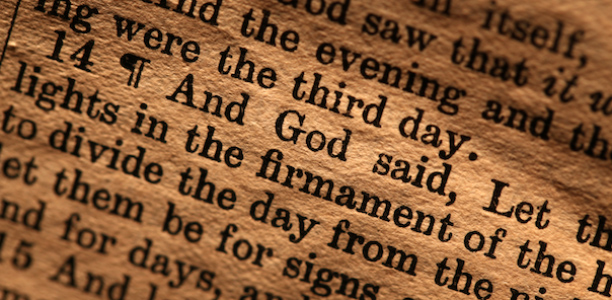By David Faust
 I smiled at the irony when I read a sign in a hardware store that said, “We specialize in helping Do It Yourselfers.” Even if you do things yourself, you probably need some help.
I smiled at the irony when I read a sign in a hardware store that said, “We specialize in helping Do It Yourselfers.” Even if you do things yourself, you probably need some help.
Spiritual Free-for-All
In one of the stormiest sections of the Bible, the book of Judges chronicles the tumultuous season after Moses and Joshua died and before Saul became Israel’s first king. Two identical verses summarize decades of warfare and interpersonal conflict by saying, “In those days Israel had no king; everyone did as they saw fit” (Judges 17:6, 21:25).
During this time of chaos and anarchy, God raised up leaders (judges), several of whom were colorful individuals:
• Jair “had thirty sons, who rode thirty donkeys. They controlled thirty towns” (Judges 10:4).
• The son of a prostitute, Jephthah, is famous for the way his only child (a daughter) paid a high price for his poorly-thought-out vow (11:29-40).
• Abdon “had forty sons and thirty grandsons, who rode on seventy donkeys” (12:14).
• Samson is known for his long hair, his physical strength, and his fondness for a manipulative woman named Delilah (chapters 13–16). Samson’s uncommon bravery was offset by a painful lack of self-discipline.
• The story of a fellow named Micah (not to be confused with the godly prophet who served later in Israel’s history) appears in chapter 17. In direct violation of the Ten Commandments, Micah trivialized the worship of God by keeping silver “household gods” in his home and took it upon himself to install his own son and a traveling Levite as his own personal “priests” (17:1-13).
The Israelites were religious Do-It-Yourselfers. It was a spiritual free-for-all as all the people “did as they saw fit.” Idolatry, violence, and broken families were the result.
What We Can Learn
The book of Judges teaches us a number of important lessons:
• It shows the need for a moral compass. No one benefits when God’s moral standards are ignored and rejected. Like travelers who need a GPS or a map, we need the Creator to guide us. The psalmist was right when he prayed, “Your word is a lamp for my feet, a light on my path” (Psalm 119:105).
• The book of Judges also illustrates the need for godly leadership—and the willingness to follow. God designed the family so that children will honor their parents. He designed the church so that sheep will trust and listen to their shepherds. The Bible tells us to have confidence in our godly leaders, “submit to their authority,” and do our best to make their work a joy (Hebrews 13:17).
• Further, the book of Judges demonstrates the need for trusting God in dark times. Society seemed to be falling apart in those chaotic days, but the Lord was still at work. Through famine, poverty, and grief, a faithful young woman named Ruth told her widowed mother-in-law, “Your people will be my people and your God my God” (Ruth 1:16). God used Ruth and her husband Boaz to fulfill a key part of his plan, and through their ancestral lineage the great King David was born.
Do It Yourself Religion doesn’t work. We can’t deliver ourselves from sin. We can’t overcome death by our own efforts. Instead of doing whatever we see fit, we need to follow the moral compass of God’s Word, respect and follow godly leadership, and trust God in dark times. In the long run, his way always turns out better than our way.
David Faust serves as the Associate Minister at East 91st Street Christian Church in Indianapolis, Indiana.
The Lookout’s Bible Reading Plan for April 26, 2015
Use this guide to read through the Bible in 12 months. Follow David Faust’s comments on the highlighted text in every issue of The Lookout.
Mark 7:24-37
1 Corinthians 12:14-31
Psalm 89:1-18
Judges 16
Mark 8:1-13
1 Corinthians 13
Psalm 89:19-52
Judges 17, 18
Mark 8:14-21
1 Corinthians 14:1-25
Psalm 90
Judges 19
Mark 8:22-30
1 Corinthians 14:26-40
Psalm 91
Judges 20, 21
Mark 8:31-38
1 Corinthians 15:1-28
Psalm 92
Ruth 1



Comments: no replies